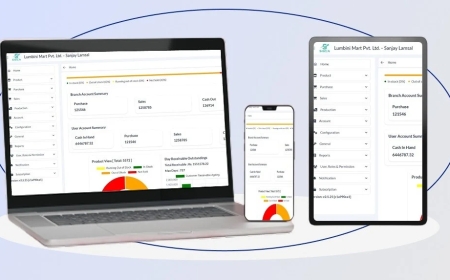PSYCH-K® Exercises for Athletes and Performance Enhancement: Unlocking Peak Potential
Athletic excellence is the result of both external effort and internal mastery. PSYCH-K® exercises give athletes the tools to align

Introduction
Athletic success is more than just physical prowessit is deeply rooted in mindset, focus, and the ability to overcome inner barriers. Many athletes train their bodies relentlessly, yet overlook the importance of their subconscious beliefs. This is where PSYCH-K, a powerful mind-change technique, comes into play. By addressing and transforming limiting beliefs at the subconscious level, PSYCH-K empowers athletes to enhance performance, build resilience, and reach new heights. In this article, we explore how PSYCH-K exercises can be strategically applied by athletes to elevate their game and maintain peak mental fitness.
What is PSYCH-K?
PSYCH-K (Psychological Kinesiology) is a method that utilizes muscle testing, whole-brain integration, and specific belief-change protocols to align conscious goals with subconscious programming. Developed by Robert M. Williams in 1988, it is widely used for personal growth, stress management, and behavioral transformation.
For athletes, this approach helps eliminate subconscious blocks that may hinder optimal performance. Whether it's fear of failure, performance anxiety, self-doubt, or past trauma, PSYCH-K offers a safe and effective way to reprogram the mind for success.
Why Mental Conditioning is Crucial for Athletes
Success in sports requires more than strength and skillit demands:
-
Confidence under pressure
-
Consistent motivation
-
Emotional resilience
-
Focus and mental clarity
-
Stress management and recovery
Mental conditioning has been the secret weapon of many elite athletes. When the subconscious mind is aligned with performance goals, training becomes more effective, and results improve dramatically.
How PSYCH-K Supports Athletic Performance
PSYCH-K stands out because it:
-
Targets Deep-Rooted Beliefs: Often, athletes carry internalized beliefs like "I'm not good enough" or "I crack under pressure." PSYCH-K transforms these beliefs into empowering ones.
-
Enhances Visualization and Goal Setting: Visualization becomes more potent when the subconscious mind supports the vision. Athletes can lock in their ideal outcome on a deeper level.
-
Reduces Performance Anxiety: PSYCH-K balances the brain to handle high-pressure situations calmly and effectively.
-
Accelerates Recovery from Injuries: By shifting mental and emotional blocks associated with injury, the body often responds with faster healing.
Core PSYCH-K Exercises for Athletes
Below are key PSYCH-K processes that athletes can use to boost performance and mental strength:
Belief Change Process
This foundational exercise helps athletes install empowering beliefs. For example:
-
From: I panic in close games.
-
To: I perform with calm confidence in every situation.
By using muscle testing and whole-brain postures, this process rewires the subconscious for success.
Goal Clarification and Statement Balancing
Athletes can define specific performance goals and transform them into balanced belief statements. Examples include:
-
I am a strong, focused, and successful competitor.
-
I trust my training and instincts.
When these statements are tested and installed through PSYCH-K processes, the mind and body begin to work in harmony.
Transformation of Perceptions of Stress (Rewriting Past Setbacks)
This powerful PSYCH-K process allows athletes to reframe stressful events (e.g., past losses, criticism, injuries) so they no longer trigger negative emotions.
It helps them:
-
View setbacks as growth opportunities
-
Reduce emotional baggage
-
Free themselves from fear of repeating past mistakes
VAK to the Future Exercise
VAK (Visual, Auditory, Kinesthetic) is a visualization method that helps athletes create and embody their desired outcomes.
-
Visualize crossing the finish line first
-
Hear the crowd cheering
-
Feel the exhilaration of winning
Then, with PSYCH-K, lock in this experience on the subconscious level so the mind believes it's already real.
Surrogation Technique (for Coaches and Trainers)
In cases where an athlete cannot be present, PSYCH-K trained facilitators can work through a surrogate to help shift the athletes subconscious patternsespecially helpful for young athletes or injury recovery.
Real-Life Applications
Athletes from various disciplines report breakthroughs after integrating PSYCH-K into their training. Here are some typical scenarios:
-
A sprinter who continually faltered at the starting block overcomes fear and wins gold.
-
A tennis player plagued by self-doubt begins to trust their instincts and outperforms expectations.
-
A football player recovers rapidly from injury after addressing emotional trauma linked to the event.
The Role of PSYCH-K Facilitators
Working with a certified PSYCH-K Facilitator can amplify results. These professionals help athletes:
-
Identify limiting beliefs
-
Guide them through PSYCH-K protocols
-
Track progress and recalibrate goals
-
Maintain alignment throughout the sports season
Some athletes also undergo PSYCH-K Facilitator training themselves to deepen their mental edge.
Tips for Integrating PSYCH-K into Your Athletic Routine
-
Start with a clear goal (e.g., improve concentration, eliminate fear)
-
Schedule regular sessions, just like physical training
-
Keep a journal of emotional and performance changes
-
Pair it with breathwork, mindfulness, and recovery practices
-
Use before and after competitions to stay balanced and centered
Final Thoughts
Athletic excellence is the result of both external effort and internal mastery. PSYCH-K exercises give athletes the tools to align their subconscious beliefs with their conscious ambitions, enabling breakthroughs that training alone may not achieve. By incorporating PSYCH-K into their performance routine, athletes open the door to mental clarity, emotional resilience, and sustained excellenceboth on and off the field.






























